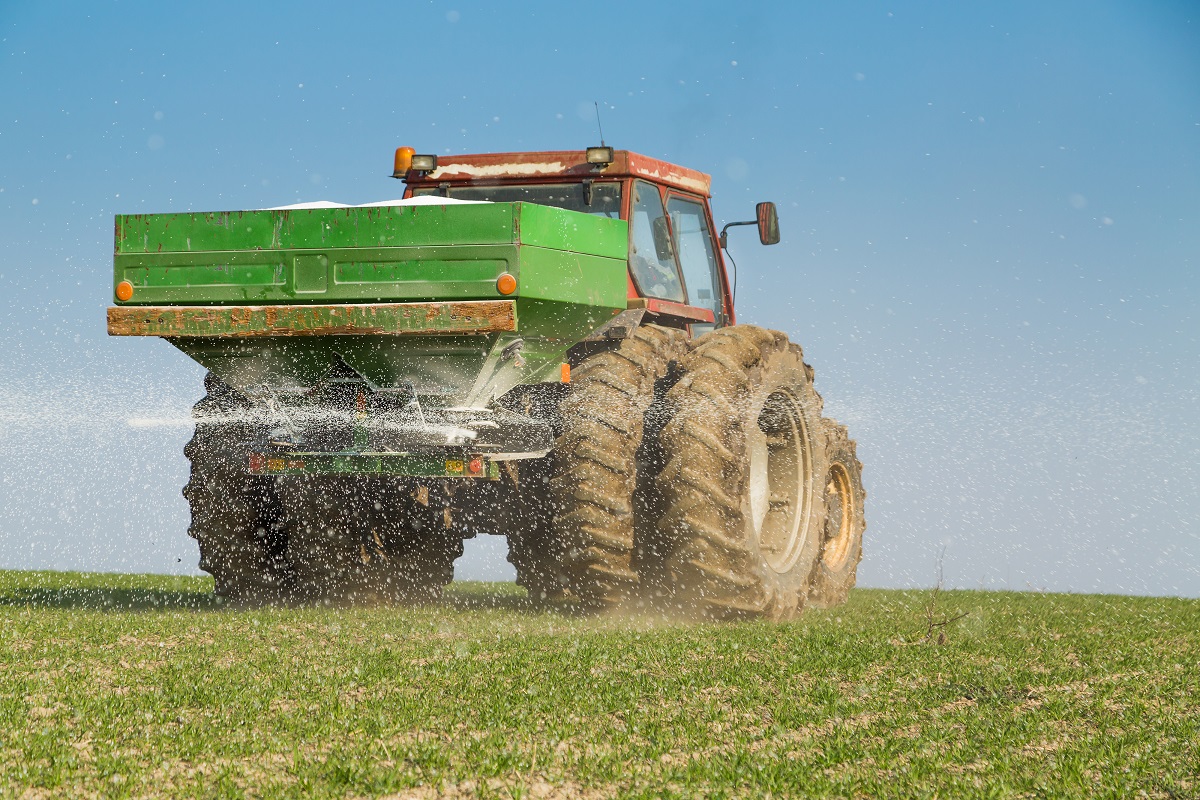- Regular maintenance of rural business properties prevents larger issues, requiring strategic planning and a proactive approach for efficiency and cost-effectiveness.
- Safety should always be a top priority; only perform tasks like roofing or electrical work with the proper knowledge and equipment.
- Community engagement offers invaluable benefits such as advice, trusted professional referrals, and shared property maintenance and improvement resources.
- Functionality is more critical than aesthetics in rural settings; ensure all property systems operate smoothly to support your business activities.
- Adopting a detailed maintenance strategy ensures the success of your rural business and enhances your connection with the community and the surrounding environment.
Maintaining a business property in a rural setting is a balancing act of preserving the natural environment’s charm and ensuring the necessary functionality to conduct business effectively. However, the maintenance of rural business properties often comes with unique challenges, necessitating a proactive and diligent approach to upkeep. This comprehensive guide is designed to help rural business owners and property managers understand the significance of meticulous maintenance, share preventive strategies, and provide detailed guidelines for maintaining crucial aspects of your property. Keeping your property in top condition enhances the customer experience and safeguards your investment for years.
The Rural Quandary: Balancing Tradition and Modern Infrastructure
Rural business owners face a delicate quandary. On one hand, the allure of a rural setting draws customers seeking an escape from the hustle and bustle of city life. On the other hand, the infrastructure required to operate a successful business must contend with the elements and, often, a lack of immediate access to modern utilities.
A solid maintenance strategy is indispensable to bridge this gap. Regular checks and proactive repair work can prevent small issues from escalating into major disruptions. In the long run, this can save on significant repair costs and extend the life of your property, contributing to the sustainability of your business in the rural landscape.

Preventive Maintenance Strategies: Your Property’s Active Shield
Prevention is better than cure, and this adage could not ring truer regarding rural property maintenance. Investing time in regular checks and simple repairs can significantly impact the preservation of your property.
Developing a Maintenance Schedule
The first step is establishing a maintenance schedule tailored to your property’s needs. It should include seasonal tasks, such as checking heating systems before winter sets in, and regular maintenance activities, like pest control and building inspections.
Engaging a Professional Inspection Team
While many maintenance tasks can be managed in-house, some require the expertise of a professional. Building a network of reliable maintenance professionals is key to promptly addressing issues beyond your DIY scope. This team can include roofing specialists, electricians, plumbers, and HVAC technicians.
Record Keeping and Documentation
Maintaining detailed records of all maintenance activities and inspections can provide invaluable insights into your property’s health. They serve as a reference point for recurring issues and help determine the effectiveness of your maintenance efforts.
Roof and Gutter Maintenance: Warding Off Water’s Ingress
The roof is the first defense against the elements for many rural properties. Neglecting its maintenance can result in costly water damage and compromise the structural integrity of the entire building.
Regular Inspections and Repairs
An annual roof inspection can help identify and rectify potential issues like loose shingles, damaged flashing, or blocked vents. These seemingly small issues can lead to significant water intrusion during heavy downpours or snowmelt.
Managing Vegetation on and Around the Roof
Overhanging branches and accumulating debris can cause wear and tear to your roof, creating entry points for water. Trimming back vegetation and cleaning debris regularly can help maintain the roof’s integrity.
Gutter Systems: Seasonal Cleanings and Repairs
Gutters are critical in channeling water away from your property’s foundation, preventing erosion and basement flooding. Ensure your gutters are cleaned at least twice a year and have them repaired as soon as you notice leaks or sagging.

Landscaping and Groundskeeping: Aesthetic and Environmental Functionality
How your property is landscaped and maintained can influence the environment and the aesthetic appeal of your business. In rural settings, cohesive landscaping can integrate your property with the natural surroundings, preventing erosion and offering a welcoming first impression to visitors.
Native and Low-Maintenance Plantings
Considering local plant species that are adapted to the environment and require minimal supplemental watering and maintenance is a sustainable choice. These plantings not only beautify your property but also contribute to environmental conservation.
Erosion Control Measures
Sloping terrain, common in rural areas, is susceptible to erosion. Implementing strategies such as terracing, planting cover crops, and installing erosion blankets can protect soil from washing away during heavy rains.
Maintaining Roadways and Parking Lots
Your rural business’s driveways and parking areas are essential for customer convenience. Regular grading, filling potholes, and applying new gravel when needed can keep these areas in good condition and prevent vehicle damage.
Plumbing and Water Systems: The Lifeblood of Rural Operations
Water systems on rural properties can vary from simple wells to more complex setups. Regardless of the system, regular checks and timely maintenance are crucial to avoid disruptions in the water supply and prevent environmental contamination.
Regular Pump Inspections and Repairs
The pump is a vital component of water wells. Regular inspection of the pump, pressure tanks, and well casing can identify issues such as low pressure, water discoloration, or strange noises that may indicate a problem.
Preventing Frozen Pipes
Winter in the countryside can be harsh, potentially leading to frozen and burst pipes. Ensuring adequate insulation, especially in unheated areas, and letting faucets trickle in extreme cold can help prevent this issue.
Septic Tank Maintenance
Maintaining a septic system in optimal condition is necessary for proper waste disposal. Regular pumping, inspection of drain fields, and cautious use of the system can prevent backups and contamination of groundwater. Hiring a reputable septic tank pumping service can also help ensure compliance with local regulations.
Heating and Cooling Systems: Keeping Comfort at Bay
Your HVAC system’s efficiency and reliability are integral to providing comfort for customers and employees, especially in extreme weather conditions commonly found in rural areas.
Cleaning and Replacing Filters
A clogged filter can restrict airflow and reduce the system’s efficiency. Regular cleaning or replacement, depending on the type of filter, can improve air quality and keep your system running smoothly.
Ductwork Inspection
Over time, ductwork can develop leaks or become clogged with debris, reducing the system’s efficiency. Periodic inspection and cleaning of ducts is essential to maintain proper air circulation and reduce energy costs.
Professional Maintenance Services
Engaging the services of a professional HVAC technician for annual maintenance can catch small issues early, ensuring that your system is in peak condition when you need it most.
Electrical System Safety: Illuminating the Path to Business Success
The electrical system is the unsung hero that powers your business operations. Neglecting its maintenance can lead to outages, equipment damage, and, worst of all, fire hazards.
Lighting and Fixture Checks
Flickering lights and faulty fixtures are indicators of electrical problems. Inspect and replace damaged or outdated fixtures to avoid potential fire risks and ensure consistent lighting.
Surge Protection
Due to their distance from power plants, rural areas can be more susceptible to power surges. Installing surge protectors can safeguard sensitive electrical devices from these surges, extending their lifespan.
Updating Electrical Panels
Outdated electrical panels might not meet the energy requirements of contemporary businesses. Upgrading to a panel with higher capacity can avert overloads and circuit trips, guaranteeing a consistent electricity supply.
Adapting Maintenance Practices for Rural Properties
Rural businesses’ remote nature dictates a maintenance approach different from urban properties. Access to materials and skilled labor might be limited, but the sense of community can be a strong ally.
DIY with Care
While it’s essential to be self-reliant, some tasks like roofing repairs or electrical work can be dangerous. Only tackle these maintenances if you have the proper knowledge and safety equipment.
Community Involvement
Engaging with your local community can yield many benefits, including advice on property upkeep, referrals to trusted professionals, and even shared maintenance resources.
Prioritizing Function Over Form
Functionality should take precedence over aesthetics in a rural landscape. Maintaining the proper function of all property systems ensures the smooth operation of your business, even if it may lack the uniformity commonly associated with urban settings.
Conclusion: Proactive Maintenance, Rewarding Experience
Buffeted by the elements yet bolstered by the beauty of the countryside, maintaining rural business properties requires commitment, adaptation, and a keen eye for detail. Staying ahead of maintenance issues is an investment in the future of your business, preserving not just the physical property but also its role in the community and ecosystem. By adhering to the guidelines outlined in this post, you’re not just undertaking routine checklists; you’re ensuring a long and prosperous life for your rural business.
Remember, while the challenges of rural property maintenance are unique, so are the rewards of a job well done. Celebrate the fruits of your labor in the thriving business you maintain and the deep-rooted connection you foster with the land and those who share your rural experience.

